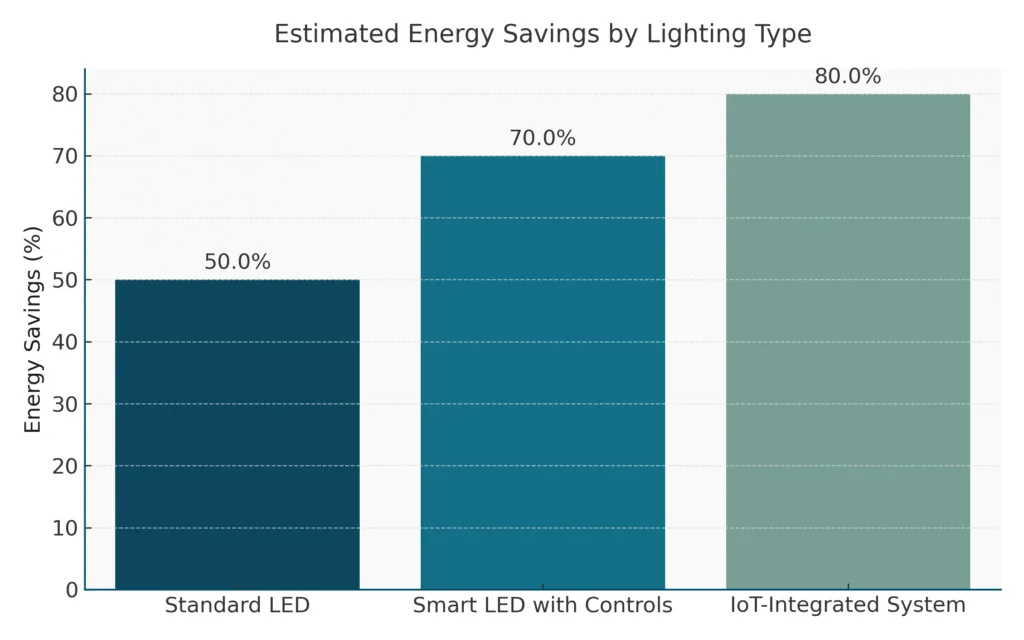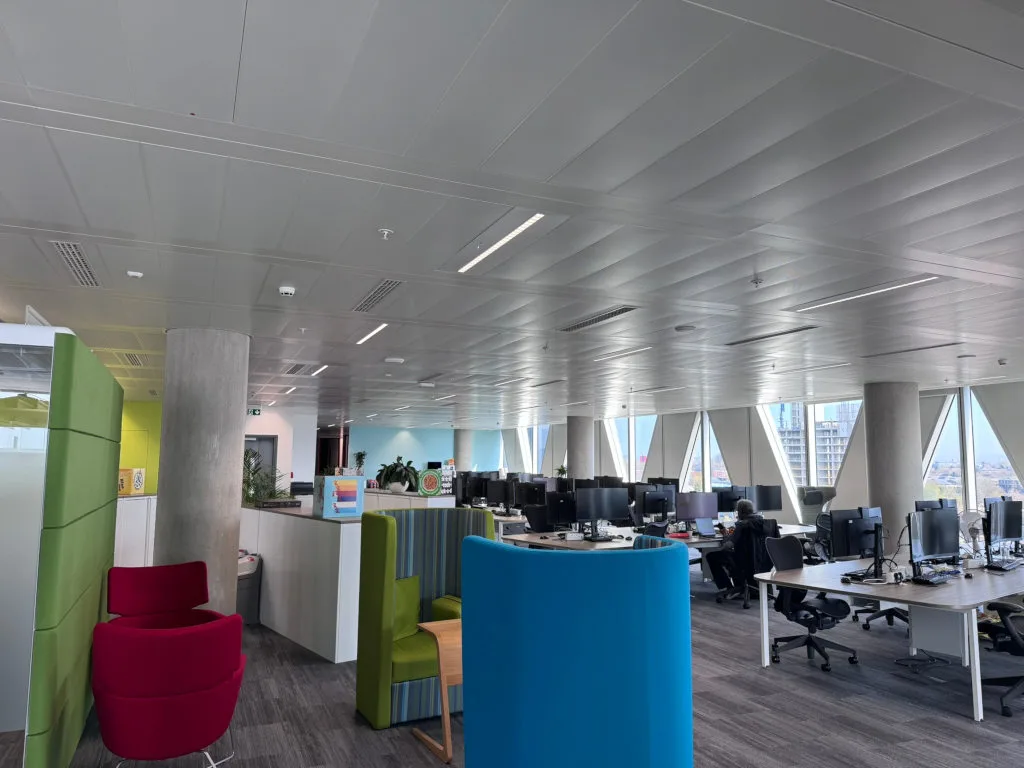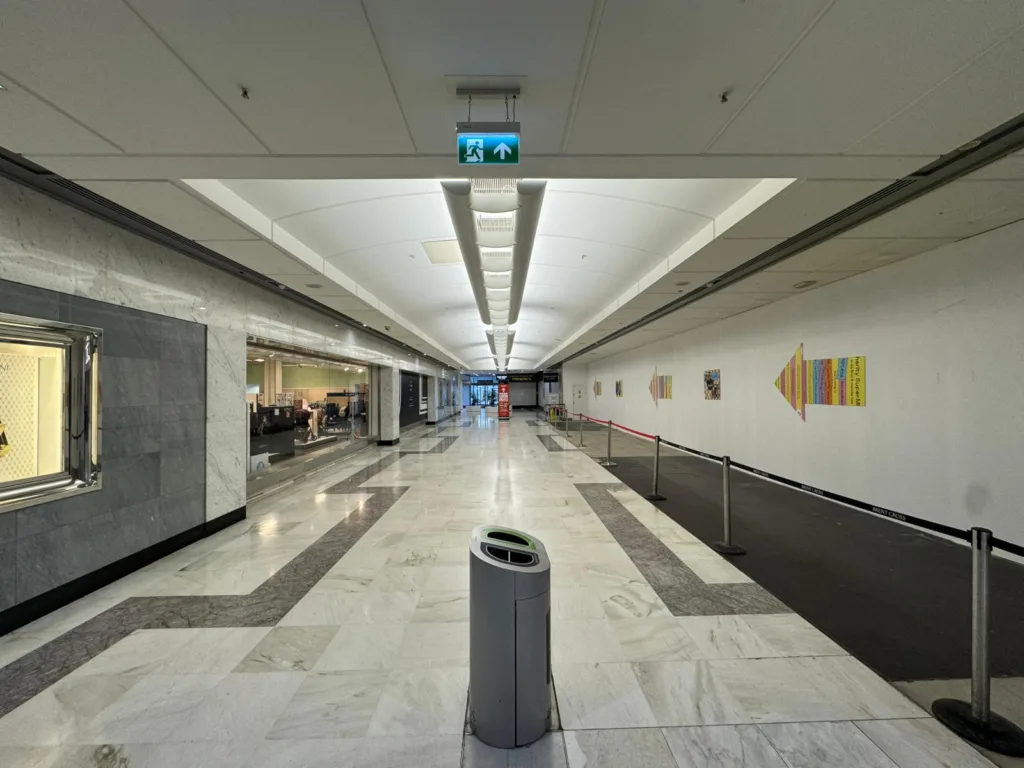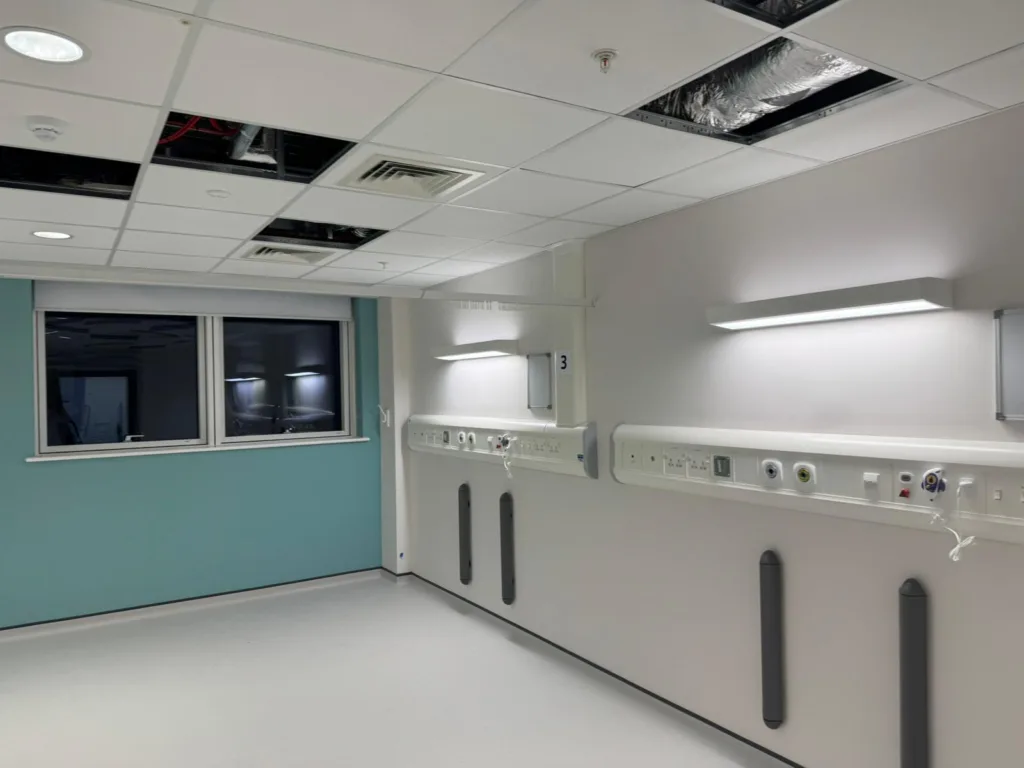As the UK works towards its 2050 Net‑Zero goal, data shows smart lighting isn’t just a trend, it’s a measurable driver of energy savings, policy compliance, human wellbeing and operational insights.
Smart lighting = energy savings
The UK Green Building Council’s 2023–24 Impact Report highlights that lighting controls (e.g. occupancy, daylight dimming) combined with smart systems yield 10–20% energy reductions. From our own analysis and results from real-world projects, energy savings are often around 50%-70% dependent on the systems being replaced.
Government backing is real and growing
The Smart Systems & Flexibility Plan and the Electricity Networks Strategic Framework highlight how smart controls support grid flexibility, potentially saving £6–10 bn per year by 2050.
Regulation is pushing forward
New Part L Building Regulations require zone-based lighting controls, and the UKGBC Retrofit Guide endorses lighting control upgrades as low-impact, high-impact retrofits.
Adoption is increasing but still early
BEAMA research shows that while adoption is still early, momentum is increasing, especially with IoT-enabled systems showing up to 80% energy savings.
Beyond energy: wellbeing & insights
Smart lighting supports comfort, concentration, and health outcomes, while real-time analytics enable smarter maintenance, fault detection, and optimisation.
Estimated Energy Savings by Lighting Type

How Trojan Lighting Can Help
- Compliance-ready retrofit and new-build lighting
- Smart controls integrated with BMS platforms
- Real-time dashboards for energy and carbon tracking
- Lighting designed around occupant wellbeing
- Future-ready systems for scalable smart buildings





